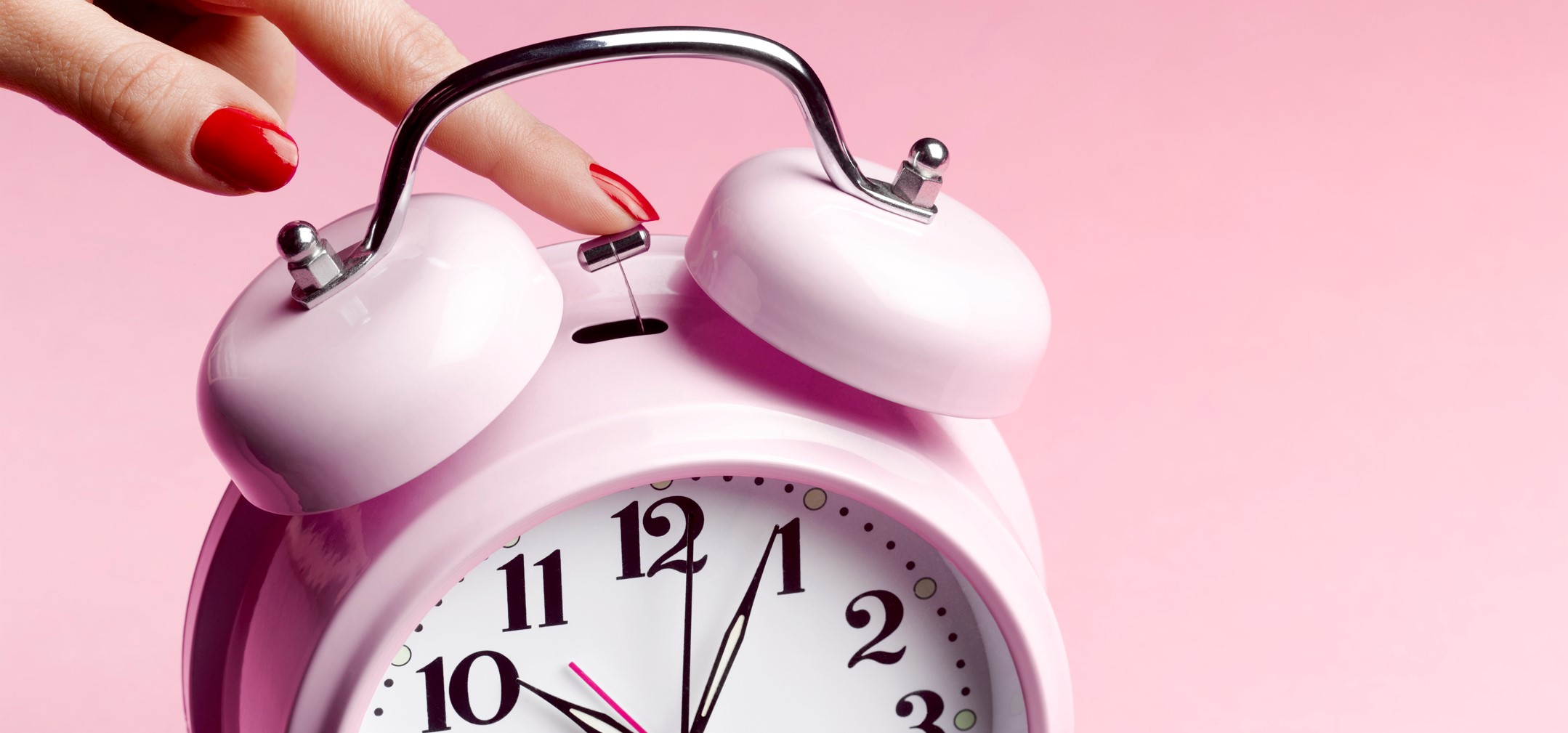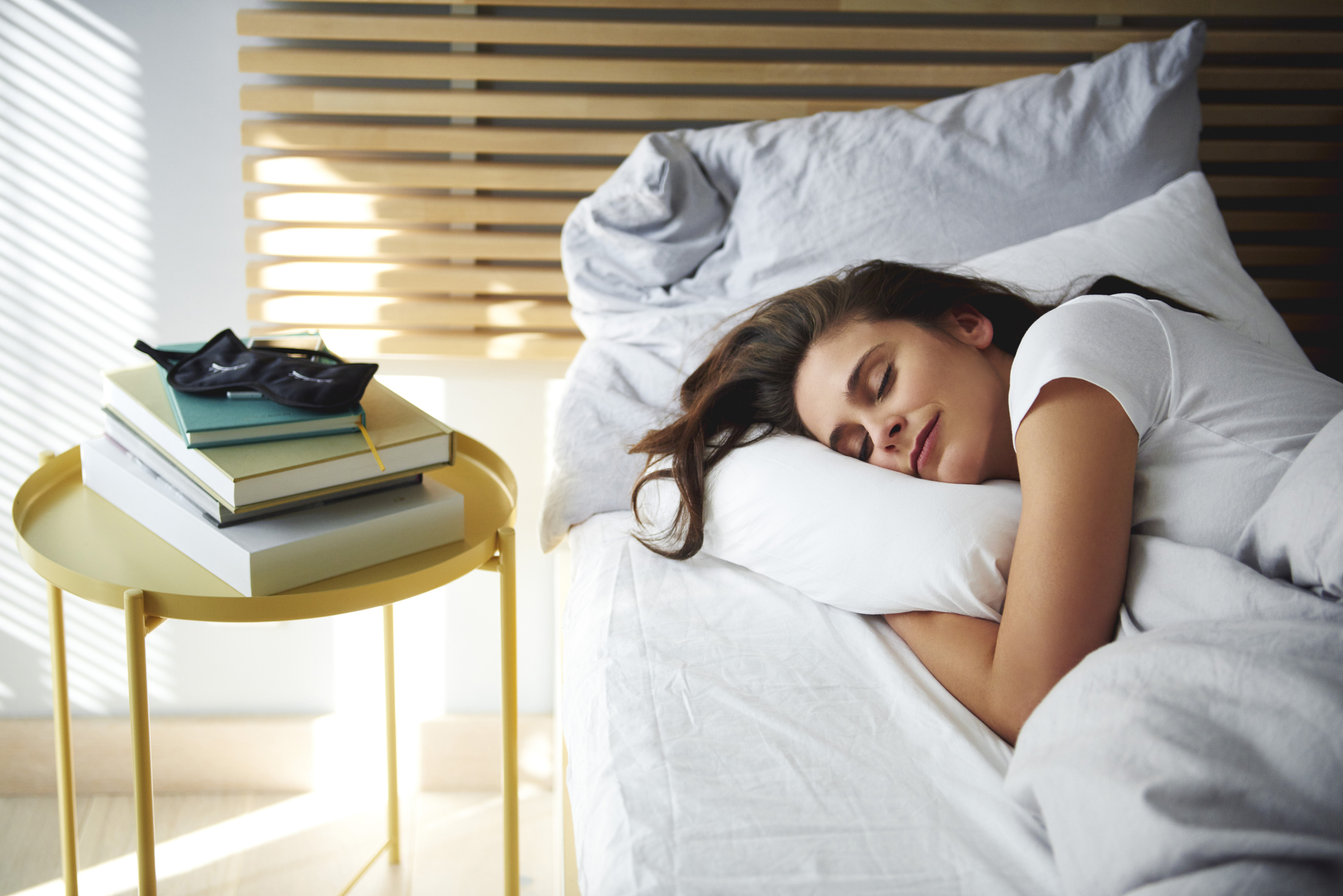How many hours sleep do I need?
Do you wonder 'how many hours sleep do I need?' It's time to calculate those zzzs

There are numerous benefits of sleep—it helps improve memory and your immune system, and is overall essential for good health and mental wellbeing. However, when life gets busy and demanding, it's often the first thing we neglect or sacrifice. It's unfortunate because quality sleep is as vital to excellent health as eating right and getting enough exercise.
Read on to learn how much quality sleep we really need daily, why it's critical to our health, and how to improve your nightly slumber by using the best meditation apps around and building healthy routines.
How many hours sleep do you need?
According to the National Sleep Foundation, persons over age 64 ought to get seven to eight hours, while those between the ages of 18-64 need seven to nine hours of sleep.
These guidelines serve as a rule-of-thumb, but the National Sleep Foundation acknowledges that the ideal amount of sleep varies for different people, depending on their circumstances. Some people have wiggle room on either side of the sleep range for an acceptable (though not optimal) amount of sleep.
Deciding how much sleep we need means considering our overall health, typical sleep patterns, and daily activities. Below are some questions to help assess your individual sleep needs:
- Am I healthy, happy, and productive on seven hours of sleep? Have I noticed that I require more sleep to perform better?
- Do I have coexisting health issues? Am I at risk for any disease?
- Do I have a high level of energy expenditure daily? Do I have a labor-intensive job or frequently play sports?
- Am I experiencing or do I have a history of sleeping problems?
- Do my daily activities require alertness for safety? Do I operate heavy machinery or drive every day?
- Do I feel sleepy at work?
- Do I depend on coffee and caffeine to get through the day?
- Whenever I have an open schedule, do I sleep more than I usually do on typical workdays?
The best way to know how much sleep we need is to start with the recommended hours and answer the above questions to identify our optimal amount of sleep.
So why do you need this many hours of sleep?
According to Harvard Health, in recent years, scientists have learned that our bodies flush out waste material from our brains during sleep. For example, part of the waste material removed contains proteins involved in Alzheimer's disease.
Another recent study out of the University of California at Berkeley found that repeated sleep interruption led to worsening atherosclerosis (the buildup of fats, cholesterol and other plaque-causing substances in and on your artery walls, which can restrict blood flow.) Still, it's less clear why individuals who sleep more than the recommended hours also have worse health outcomes.
- Best sleep trackers: learn about how you sleep

Myths and facts about sleep
- Myth: Getting one hour less sleep per day won't affect my daytime functioning.
Fact: We may not be noticeably sleepy at work but the loss of even one hour of quality sleep affects our ability to think correctly or respond quickly. It also compromises our cardiovascular health, ability to fight infections, and energy. - Myth: Getting extra sleep at night relieves my problems with excessive daytime fatigue.
Fact: While the quantity of sleep we get is essential, it's the quality of sleep that we have to pay attention to closely. Quality sleep makes us feel well-rested in the morning and ready for the day.
Myth: I can make up for my lost sleep hours by sleeping more during the weekends.
Fact: Yes, such a sleep pattern can relieve part of our sleep debt, but it cannot wholly make up for lost sleep hours. Besides, it can also affect our sleep-wake cycle, which is counterproductive.
- Best sleep aid: great accessories to help you finally get a good night’s shut-eye
How to improve the quality of your sleep
Okay, so we already know we need more sleep, but we also need to know how to get better sleep. Improving our sleep hygiene, including our sleep-related habits and bedroom setting, helps us get better rest. Below are some sleep hygiene improvements to try.
- Sticking to a daily sleep schedule, including the weekends
- Practicing a relaxing pre-bed routine daily to make it easy to fall asleep quickly
- Choosing a supportive mattress, cozy bedding, and the best pillows for sleep
- Disconnecting from all electronic devices emitting blue light such as TV screens, mobile phones, tablets, or laptops for at least 30 minutes before bed
- Minimizing potential disruptions from sound and light in our sleep area and optimizing our bedroom aroma and temperature
- Monitoring our intake of alcohol, nicotine, and caffeine daily and avoiding their consumption a few hours before bed
- Being more active during the day by incorporating some exercise into our daily routine
- Practicing meditation and relaxation techniques to help improve sleep quality
Meditation apps that help you sleep better
Meditation apps can help with difficulty falling asleep or insomnia. They contain a library of soothing music and sounds, and some have additional features like built-in reminders or a timer function.
Read our guide to Headspace versus Calm — to see if either of these is the right fit for you. Or, since most meditation apps offer free trial periods, you can try a selection first. Take a look at our list of ten popular meditation apps on the market.
- Calm
- Headspace
- Insight Timer
- Simple Habit
- Smiling Mind
- Stop, Breathe & Think
- 10% Happier
- Buddhify
- Sattva
- Pzizz
The bottom line
So how many hours of sleep do you actually need? Well, it varies for each person, and several factors affect our sleep requirements. Still, for most adults, seven to nine hours daily is the ideal amount. So get snoozing!
The My Imperfect Life team is all about helping you navigate your world. We bring you the latest on fashion, beauty, travel and wellness so you can live life on your terms.